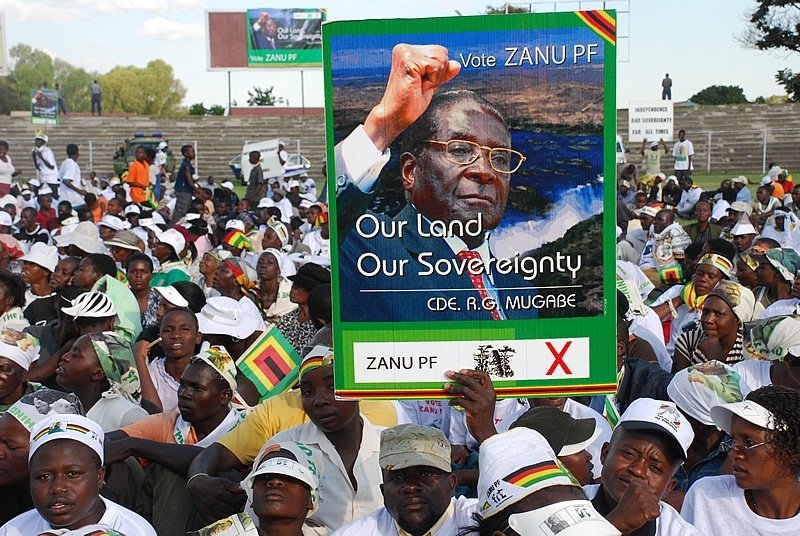
The Election Resource Centre (ERC) expresses its disquiet at the recent signing of the Electoral Amendment Bill into law by President Robert Mugabe as notified in the Government Gazette of August 22 2014.
Election Resource Centre
The presidential assent to the electoral changes happened in the realm of profound inadequacies of the Bill in terms of its failure to address fundamental challenges to the conduct of elections in Zimbabwe as noted by election stakeholders during the July 2013 polls.
While the recent amendments were meant to address legitimate gaps to the continued handling of electoral processes, such adopted changes failed in a big way to exhaustively address other critical gaps related to the electoral processes, for instance the contradictions which exist with regards to voter registration.
On the one hand the Constitution of Zimbabwe bestowed on ZEC the task of registering voters inter alia, the Electoral Act on the other hand continues to recognise the Registrar General as being in charge of that process. Essentially, as Zimbabwe subscribes to a continuous voter registration model, there continues to be a gap and indeed lack of clarity on who and where prospective voters could register as voters at present.
The ERC appreciates the need to expedite the legitimisation of changes that were brought through the Presidential Temporary Measures Act (Statutory Instrument 85/2013) which facilitated administration of the July 2013 harmonised elections.
Equally acknowledged was the need to address gaps which existed especially with regard to the filling of vacancies which could emerge in the legislature.
In such acknowledgement, the ERC is deeply concerned with what has become a deplorable culture of piecemeal, non-comprehensive and reactionary approaches to electoral reform which often results in the nation plunging into electoral events ill-prepared.
- Residents crafting local governance reforms manifesto
- Govt outfoxes opposition on reforms
- Electoral Reforms must be inclusive of all stakeholders
- Why dialogue is the only way to life?
Keep Reading
In fact, the reason why a presidential decree had to be used to make inevitable amendments to the Electoral Law ahead of the July 2013 polls was squarely because the coalition government quibbled over making timeous and comprehensive changes to the electoral law.
As the nation emerges from disputes surrounding the July 2013 polls, the ERC calls upon concerned electoral authorities to have a defined plan for comprehensive and inclusive electoral reforms which are informed by past electoral practices while it also considers views from all stakeholders including recommendations from regional and domestic observer groups who monitored the past general elections.
The election authorities must desist from the often reactionary, ad hoc and haphazard approach to electoral reform which regrettably creates a fertile ground for contestations on any given electoral event.
The mentioned plan must recognise that efforts to comply with the requirements of the new Zimbabwe Constitution are time-bound. The changes to the Electoral Law, as demanded by the Constitution will result in significant changes not only to the electoral system, but also to the work of institutions mandated with managing elections.
Such a scenario compels electoral authorities to expedite re-alignments of Electoral Laws to enable the Zimbabwe Electoral Commission (ZEC) to make timeous adjustments to its electoral infrastructure as they prepare to take over the sole administration of all electoral processes.
Such acclimatisation requires adequate time to test and solidify the resultant new systems before they are implemented at the next general elections and possibly during by-elections which might emerge.
At the latest, such changes to the electoral framework must be in place by June 2015, at least three years before the 2018 general elections and in fact two years following the adoption of a new constitutional order for Zimbabwe.
Consistent to the foregoing, the ERC urges the Ministry of Justice, Legal and Parliamentary Affairs, ZEC and the Parliament of Zimbabwe to institute an inclusive, comprehensive agenda for electoral reform which is guided by the inalienable need to give enough time for new provisions that could emerge to be put under test before being refined ahead of the next general elections.
The envisaged plan for electoral reform must not only be informed by observations and recommendations made by stakeholders to the July 2013 polls, but should also be guided by international best practices and indeed views from Zimbabweans who as the Constitution of Zimbabwe demands, must be consulted effectively on all law-making processes.











